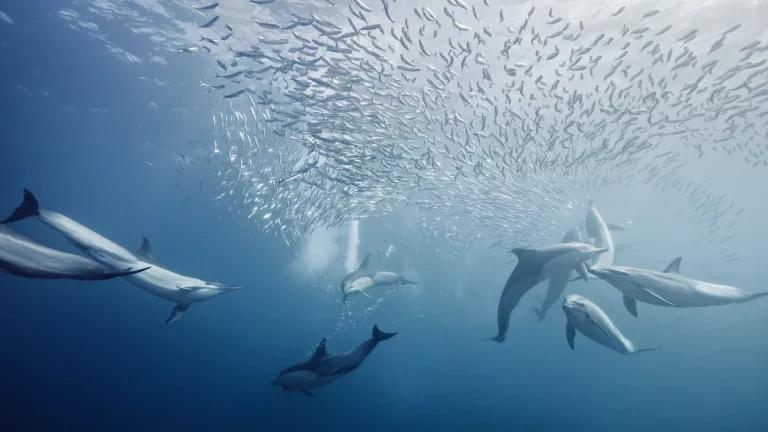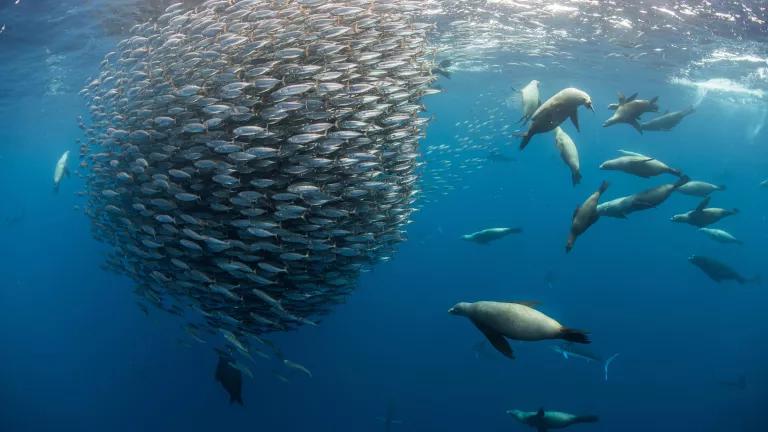Strengthening U.S. Leadership to Deter Illegal Seafood: Implementation Challenges and Recommendations for the Seafood Import Monitoring Program
As the world’s largest seafood-importing nation by value, the United States holds outsize purchasing power and the market leverage necessary to help transform the seafood industry and eliminate destructive illegal, unreported, and unregulated fishing.

Destructive illegal, unreported, and unregulated (IUU) fishing depletes the world’s fish populations, harms marine habitats, threatens food and national security, and is a driver of human trafficking and labor abuses in the seafood industry. It also accounts for up to 30 percent of the world’s seafood harvest. As the world’s largest seafood-importing nation by value, the United States holds outsize purchasing power and the market leverage necessary to help transform the seafood industry and eliminate IUU fishing.
The United States’ first line of defense against IUU-fished imports is the Seafood Import Monitoring Program (SIMP), which is designed to trace and document the legality of imported seafood. However, despite SIMP, a U.S. International Trade Commission study found that 11 percent of 2019 U.S. seafood imports, valued at $2.4 billion, was obtained through IUU fishing. The continued influx of illegal seafood into the U.S. market is in no small part a result of major gaps in SIMP regulation and enforcement of the program.
To help improve SIMP, NRDC commissioned FishWise, a nonprofit sustainable seafood consultancy, to conduct an independent, third-party analysis of program implementation from the seafood industry’s perspective. By connecting with key actors along the seafood supply chain FishWise collected detailed feedback and suggestions for improvement to supplement the agency’s own analyses of SIMP. Using the survey data and information gleaned from FishWise’s study, NRDC then developed recommendations for improving SIMP’s efficacy at combating IUU fishing and seafood fraud. Key recommendations stemming from the study include that the National Marine Fisheries Service (NMFS) prioritize data standardization and verification of SIMP records, increase transparency and accountability around SIMP performance, and expand SIMP to include more imported species.





